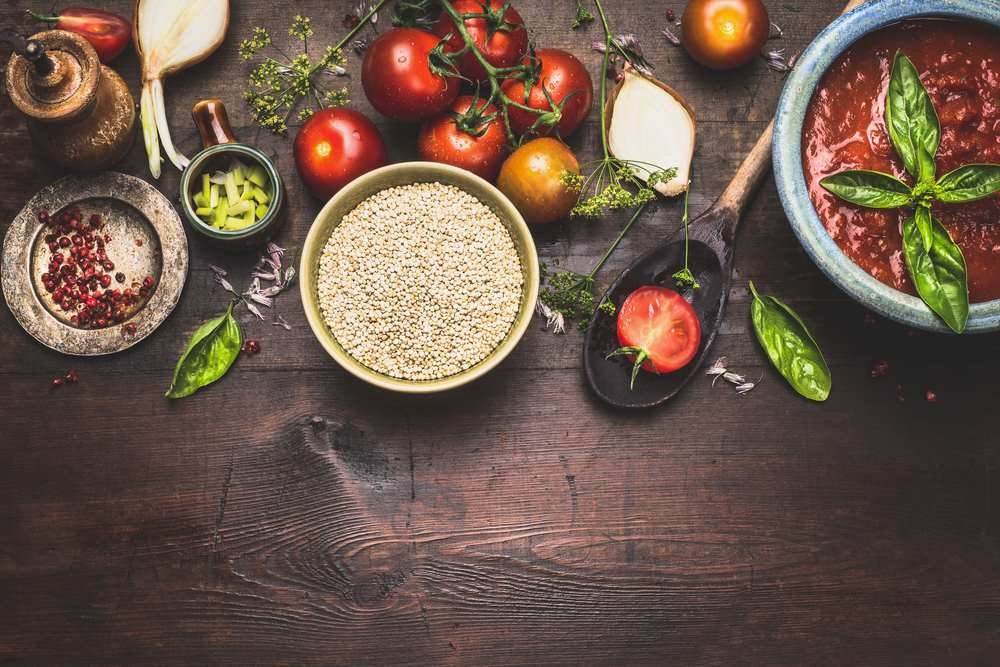Rich in beneficial nutrients, quinoa is a superfood that can help improve heart, metabolic and immune health
Quinoa may be on trend as a healthy food these days, but it isn’t new. The grain dates back three to four thousand years when the Incas realized that humans could consume the quinoa seed. It soon went on to be known as the “gold of the Incas” as the tribe believed it increased the stamina of their warriors.
Gluten-free and high in protein, quinoa is best known for being a weight-loss friendly super food. It looks a lot like couscous but is more nutritious and offers so many health benefits that NASA hopes we’ll grow it on interplanetary space flights.
There are many varieties of quinoa, but the three main types are white, red and black. The nutritional content of a cup of cooked quinoa (approximately 185 gm) is:
- Calories: 222
- Carbs: 39 gm
- Fat: 4 gm
- Protein: 8 gm
- Fiber: 5 gm
- Manganese: 58% of the RDA
- Magnesium: 30% of the RDA
- Phosphorus: 28% of the RDA
- Folate: 19% of the RDA
- Copper: 18% of the RDA
- Iron: 15% of the RDA
- Zinc: 13% of the RDA.
- Potassium: 9% of the RDA
- Over 10% of the RDA for vitamins B1, B2 and B6
- Small amounts of calcium, B3 (niacin), vitamin E and omega-3 fatty acids
We give you 9 reasons to include more quinoa in your diet:
It offers complete protein
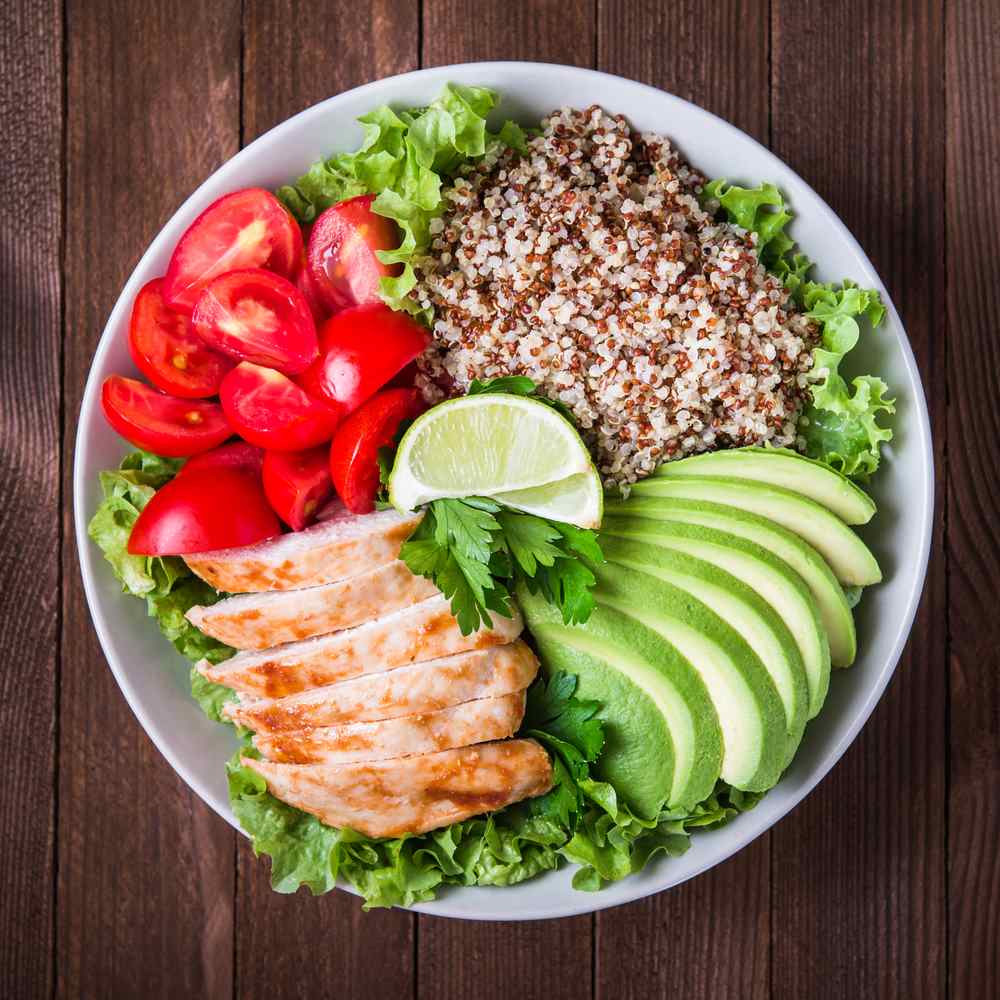
Gluten-free, this high-protein food is ideal for vegetarians since it has more and better protein than most grains. Quinoa is a complete protein as it contains all nine amino acids and helps meet the daily protein requirements for vegans or vegetarians.
Get your daily dose of fiber
Quinoa's fiber content is one of this grain's top health benefits. With about 5 gm of fiber per cooked cup, it ensures that the digestive system stays on track and keeps you satiated for longer.
Reduces bad cholesterol
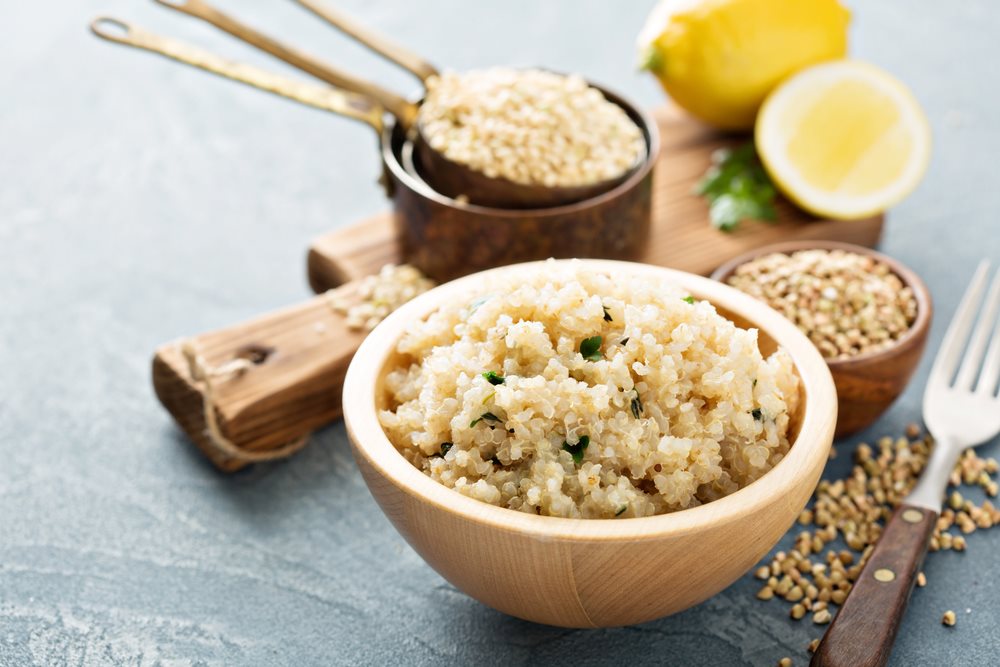
Studies show that eating quinoa helps lower LDL, or bad cholesterol, slowing down the rate of atherosclerosis thus, cutting the risk of developing coronary heart disease, congestive heart failure, and heart attacks.
Maintains blood sugar levels
The glycemic index of quinoa is around 53, which is considered low. Packed with protein, fiber, minerals and phytochemicals, quinoa makes an excellent addition to a diabetic diet.
Rich in antioxidants and boosts immune health
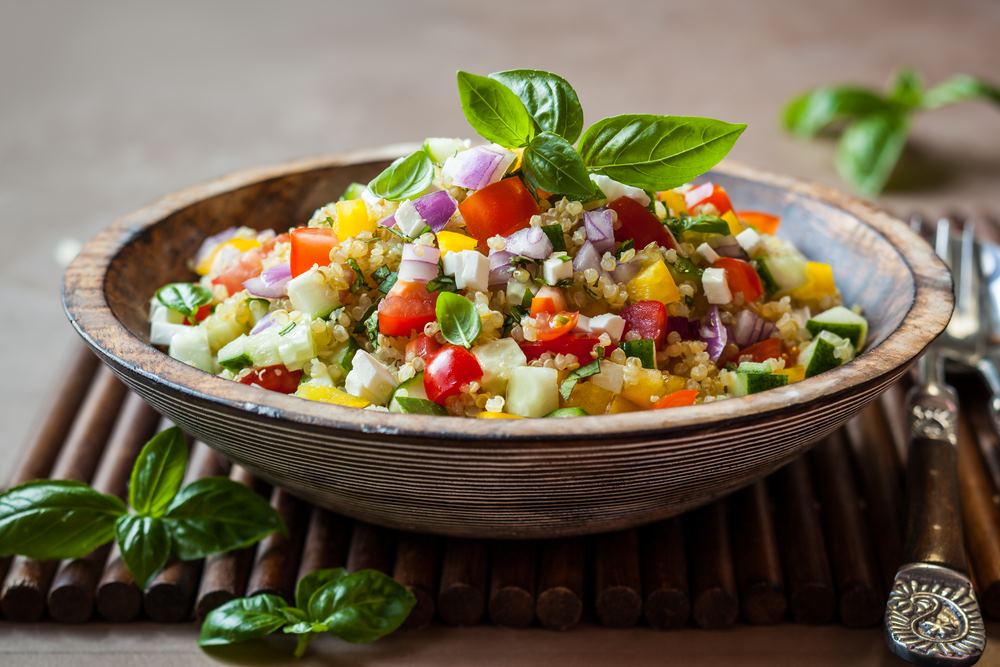
Quinoa is a good source of several minerals, including manganese, phosphorus, copper, folate, iron, magnesium and zinc and anti-oxidants. The presence of two flavonoids - quercetin and kaempferol – makes it an extremely healthy choice. The count increases if the grain is sprouted, enhancing immune health and delaying aging.
Contains iron and helps form hemoglobin
Quinoa is high in iron, the basis of hemoglobin formation. Iron carries oxygen from one cell to another, aids muscular contraction and also increases brain function. It also helps in neurotransmitter synthesis, enzyme activity, boosts metabolism and helps regulate body temperature.
Packed with magnesium, which helps relax blood vessels
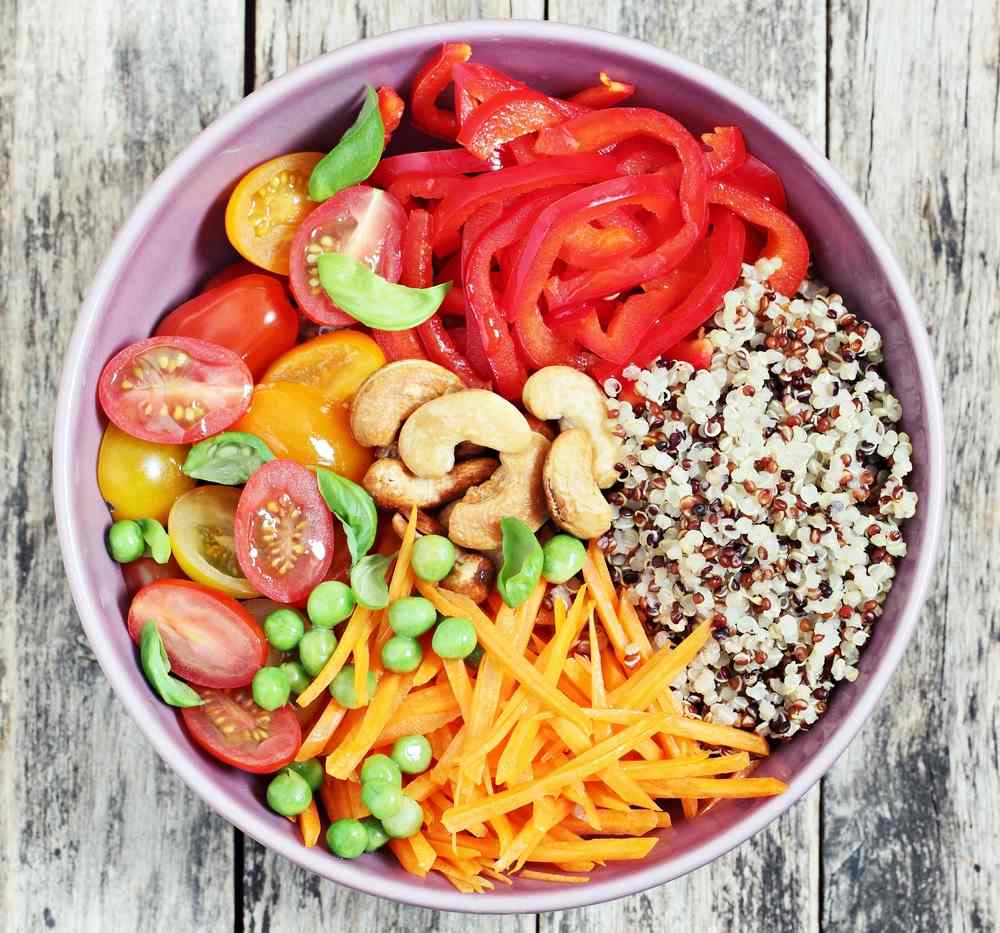
The presence of magnesium in quinoa helps relax blood vessels and alleviate migraines. It also may reduce Type 2 diabetes and ensures transmission of nerve impulses, detoxification, energy production, body temperature regulation, and formation of healthy bones and teeth.
Good for people with gluten intolerance
Researchers have been exploring quinoa as a suitable ingredient in gluten-free diets for long. Quinoa is naturally free of gluten and switching to it instead of typical gluten-free ingredients can increase the antioxidant and nutrient value of a gluten-free diet.
Great for weight loss

The carbs in quinoa consist mainly of starch, insoluble fibers and small amounts of sugars. It also contains some resistant starch, which escapes digestion and feeds the friendly gut bacteria. It is energy dense and keeps you satiated for longer, helping control appetite and hunger.
Originally Published on the HealthifyMe Blog

